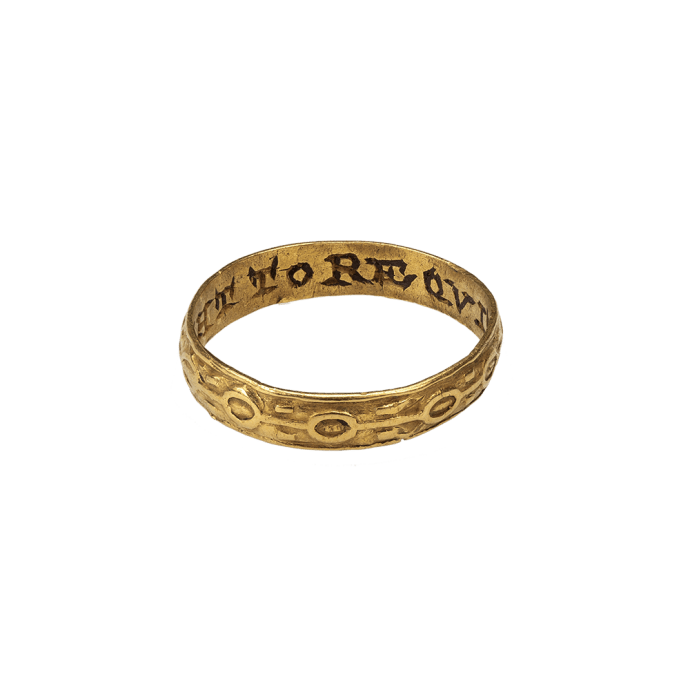


Posy Ring “TO LIGHT TO REQVITE”
, England, 17th centuryPosy Ring “TO LIGHT TO REQVITE”
Description
An ornamented gold band with D-section inscribed to the interior in Roman capitals “TO LIGHT TO REQVITE,” The exterior of the hoop is engraved with a strapwork motif. The ring shows signs of wear through age and is in good wearable condition.
Literature:
“Posy rings,” their name deriving from the term poesie or poetry, are rings inscribed with mottos either in prose or verse. They often concealed love messages inside their hoop, like here, which were only known to the giver and recipient. They find mention in the plays of William Shakespeare, such as Hamlet and the Merchant of Venice. Posy rings enjoyed great popularity in Britain throughout the seventeenth and eighteenth centuries. They were traditionally exchanged between relatives, friends, lovers, and were often given as betrothal or wedding rings.
The inscription “TO[O] LIGHT TO REQVITE,” although obscure in meaning is not uncommon. Referring to a person, it would imply that the person is too frivolous to give up, but in this instance it may mean that this tiny, yet intricately worked ring is too small or too light-weight to give away or give up. The posy is documented in Dalton (1912, no. 1308), in Jones, Finger-Ring Lore (1877) and Kunz, Rings (1917). Evans records an alternate spelling of the same posy in italics (1931, p. 103). In a review of Jones’s book, Finger-Ring Lore, from The Saturday Review (1876, p. 486), the author lists this inscription, among others, has having an obscure and intentional double meaning. Compare Scarisbrick, 2021, no. 131.
For a history of posy rings with extensive examples ranging from the medieval period to eighteenth century, see: Scarisbrick 2021 and further information on posies: Evans, 1931; Anon., A Garland of Love: A Collection of Posy-Ring Mottoes, London 1907; Dalton 1912, pp. 174 ff.; Scarisbrick 2007, pp. 74 ff., Taylor and Scarisbrick 1978; Oman 1974, pp. 39 ff.